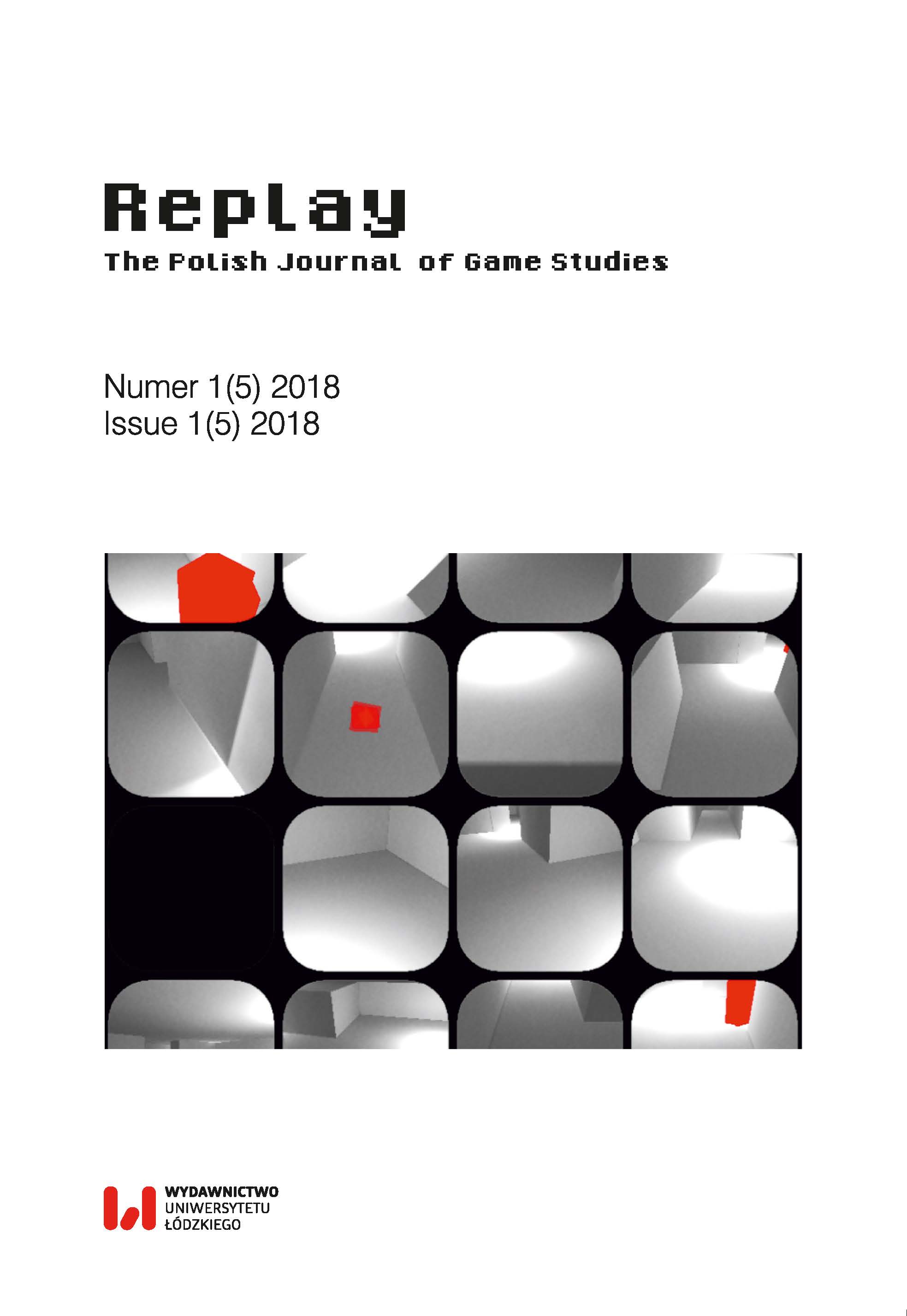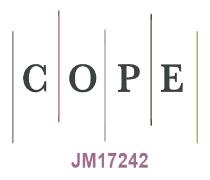Gry jako moralne laboratorium. Gamifikacja dylematów moralnych bezzałogowych samochodów
DOI:
https://doi.org/10.18778/2391-8551.05.01Słowa kluczowe:
gamifikacja, intuicje etyczne, testowalność, algorytmizacja, bezzałogowe samochody, etyka informacjiAbstrakt
Celem artykułu jest zidentyfikowanie potencjalnych korzyści oraz zagrożeń związanych z badaniem dylematów moralnych dotyczących autonomicznych pojazdów za pomocą gier i zgamifikowanych narzędzi badawczych. Gry komputerowe dają naszym zdaniem możliwość skonstruowania bardziej ekologiczne trafnych eksperymentów. Dzięki zwiększonej trafności, wyniki eksperymentów mogą lepiej odzwierciedlać rzeczywiste mechanizmy podejmowania decyzji moralnych. Dane w nich uzyskane mogą posłużyć w implementacji „modułów moralnych” w bezzałogowych pojazdach. W artykule analizujemy wybrane eksperynty wykorzystujace elementy gier komputerowych. Analizy te zestawiamy z dostępnymi w literaturze podejściami do problemu algorytmizacji etyki oraz implementacji moralności w autonomicznych maszynach. Pokazujemy również, jak można wpisać ten problem w bardziej ogólny schemat „etyki informacji” zaproponowany przez Floridiego.
Bibliografia
Alexander, L., Moore, M. (2016). Deontological Ethics. W: E.N. Zalta (red.), The Stanford encyclopedia of philosophy (Winter 2016).
Google Scholar
Blascovich, J., Loomis, J., Beall, A.C., Swinth, K.R., Hoyt, C.L., & Bailenson, J.N. (2002). Immersive virtual environment technology as a methodological tool for social psychology. Psychological Inquiry, 13(2): 103–124.
Google Scholar
DOI: https://doi.org/10.1207/S15327965PLI1302_01
Bonnefon, J.F., Shariff, A., & Rahwan, I. (2016). The social dilemma of autonomous vehicles. Science, 352(6293): 1573–1576.
Google Scholar
DOI: https://doi.org/10.1126/science.aaf2654
Bobrowski, M., Rodzińska-Szary, P., Socha, M. (2015). Kondycja polskiej branży gier wideo. Raport 2015. Dostępny online: http://kreatywna-europa.eu/wp-content/uploads/2016/01/Raport-na-temat-kondycji-polskiej-bran%C5%BCy-gierwideo-1–1.pdf [data dostępu: 16.08.2017].
Google Scholar
Cushman, F. (2013). Action, outcome, and value a dual-system framework for morality. Personality and Social Psychology Review, 17: 273–292.
Google Scholar
DOI: https://doi.org/10.1177/1088868313495594
DeSimone, J.A., Harms, P.D., & DeSimone, A.J. (2015). Best practice recommendations for data screening. Journal of Organizational Behavior, 36(2): 171–181.
Google Scholar
DOI: https://doi.org/10.1002/job.1962
ESA - Entertainment Software Association (2016). Essential facts about the computer and video game industry. Dostępny online: http://essentialfacts.theesa.com/mobile/ [data dostępu: 16.08.2017].
Google Scholar
Floridi, L. (2013). The ethics of information. Oxford University Press.
Google Scholar
DOI: https://doi.org/10.1093/acprof:oso/9780199641321.001.0001
Frey, A., Hartig, J., Ketzel, A., Zinkernagel, A., & Moosbrugger, H. (2007). The use of virtual environments based on a modification of the computer game Quake III Arena® in psychological experimenting. Computers in Human Behavior, 23(4): 2026–2039.
Google Scholar
DOI: https://doi.org/10.1016/j.chb.2006.02.010
Gitelman, L. (red.). (2013). Raw data is an oxymoron. MIT Press.
Google Scholar
DOI: https://doi.org/10.7551/mitpress/9302.001.0001
Greene, J.D., Nystrom, L.E., Engell, A.D., Darley, J.M., and Cohen, J.D. (2004). The neural bases of cognitive conflict and control in moral judgment. Neuron, 44: 389–400.
Google Scholar
DOI: https://doi.org/10.1016/j.neuron.2004.09.027
Huebner, B., Lee, J.J., & Hauser, M.D. (2010). The moral-conventional distinction in mature moral competence. Journal of Cognition and Culture, 10(1): 1–26.
Google Scholar
DOI: https://doi.org/10.1163/156853710X497149
Hursthouse, R., Pettigrove, G. (2016). Virtue Ethics. W: E.N. Zalta (red.), The Stanford encyclopedia of philosophy (Fall 2016).
Google Scholar
Illari, P., & Russo, F. (2014). Causality: Philosophical theory meets scientific practice. OUP Oxford.
Google Scholar
Järvelä, S., Ekman, I., Kivikangas, J.M., & Ravaja, N. (2012). Digital games as experiment stimulus. Proceedings of DiGRA Nordic, s. 6–8.
Google Scholar
Johansson, R., & Nilsson, J. (2016). Disarming the trolley problem – why self-driving cars do not need to choose whom to kill. W: Workshop CARS 2016 – Critical Automotive Applications: Robustness and Safety, red. M. Roy (Goteborg). Dostępny online: https://hal.archives-ouvertes.fr/hal-01375606/file/CARS2016_paper_16.pdf [data dostępu: 16.08.2017].
Google Scholar
Johansson-Stenman, O., & Martinsson, P. (2008). Are some lives more valuable? An ethical preferences approach. Journal of health economics, 27(3): 739–752.
Google Scholar
DOI: https://doi.org/10.1016/j.jhealeco.2007.10.001
Kivikangas, J.M., Chanel, G., Cowley, B., Ekman, I., Salminen, M., Järvelä, S., & Ravaja, N. (2011). A review of the use of psychophysiological methods in game research. Journal of gaming & virtual worlds, 3(3): 181–199.
Google Scholar
DOI: https://doi.org/10.1386/jgvw.3.3.181_1
Miller, B., & Record, I. (2013). Justified belief in a digital age: On the epistemic implications of secret Internet technologies. Episteme, 10(2): 117–134.
Google Scholar
DOI: https://doi.org/10.1017/epi.2013.11
Mittelstadt, B.D., Allo, P., Taddeo, M., Wachter, S., & Floridi, L. (2016). The ethics of algorithms: Mapping the debate. Big Data & Society, 3(2).
Google Scholar
DOI: https://doi.org/10.1177/2053951716679679
NHTSA (2013). Preliminary Statement of Policy Concerning Automated Vehicles. Dostępny online: https://www.nhtsa.gov/staticfiles/rulemaking/pdf/Automated_Vehicles_Policy.pdf [data dostępu: 16.08.2017].
Google Scholar
Paxton, J.M., Ungar, L., & Greene, J.D. (2012). Reflection and reasoning in moral judgment. Cognitive Science, 36: 163–177.
Google Scholar
DOI: https://doi.org/10.1111/j.1551-6709.2011.01210.x
Sicart, M. (2009). The banality of simulated evil: designing ethical gameplay. Ethics and information technology, 11(3): 191–202.
Google Scholar
DOI: https://doi.org/10.1007/s10676-009-9199-5
Sicart, M. (2013). Moral dilemmas in computer games. Design Issues, 29(3): 28–37.
Google Scholar
DOI: https://doi.org/10.1162/DESI_a_00219
Sinnott-Armstrong, W. (2015). Consequentialism. W: E.N. Zalta (red.), The Stanford encyclopedia of philosophy (Winter 2015).
Google Scholar
Sütfeld, L.R., Gast, R., König, P., & Pipa, G. (2017). Using virtual reality to assess ethical decisions in road traffic scenarios: applicability of value-of-life-based models and influences of time pressure. Frontiers in behavioral neuroscience, 11.
Google Scholar
DOI: https://doi.org/10.3389/fnbeh.2017.00122
Wallach, W., & Allen, C. (2008). Moral machines: Teaching robots right from wrong. Oxford University Press.
Google Scholar
DOI: https://doi.org/10.1093/acprof:oso/9780195374049.001.0001
Washburn, D.A. (2003). The games psychologists play (and the data they provide). Behavior Research Methods, 35(2): 185–193.
Google Scholar
DOI: https://doi.org/10.3758/BF03202541
Bethesda Game Studios (2008). Fallout 3 [PC]. USA: Bethesda Softworks.
Google Scholar
BioWare (1998). Baldur’s Gate [PC]. USA: Interplay Entertainment.
Google Scholar
BioWare (2000). Baldur’s Gate II: Shadows of Amn [PC]. USA: Interplay Entertainment.
Google Scholar
CCP Games (2003). Eve Online [PC Computer, Online Game]. CCP Games: played 12 September 2011.
Google Scholar
Lionhead Studios (2004). Fable [PC]. Wielka Brytania: Microsoft Game Studios.
Google Scholar
Media Molecule (2008). LittleBigPlanet [PS3]. USA: Sony Computer Entertainment.
Google Scholar
Mojang (2011). Minecraft [PC]. USA: Mojang.
Google Scholar
Telltale Games (2012). The Walking Dead [PC]. USA: Telltale Games.
Google Scholar
Valve Corporation, 1999 (mod) / 2000 (wersja pudełkowa), Counter-Strike [PC], USA: Vivendi.
Google Scholar
Pobrania
Opublikowane
Jak cytować
Numer
Dział
Licencja

Utwór dostępny jest na licencji Creative Commons Uznanie autorstwa – Użycie niekomercyjne – Bez utworów zależnych 4.0 Międzynarodowe.










